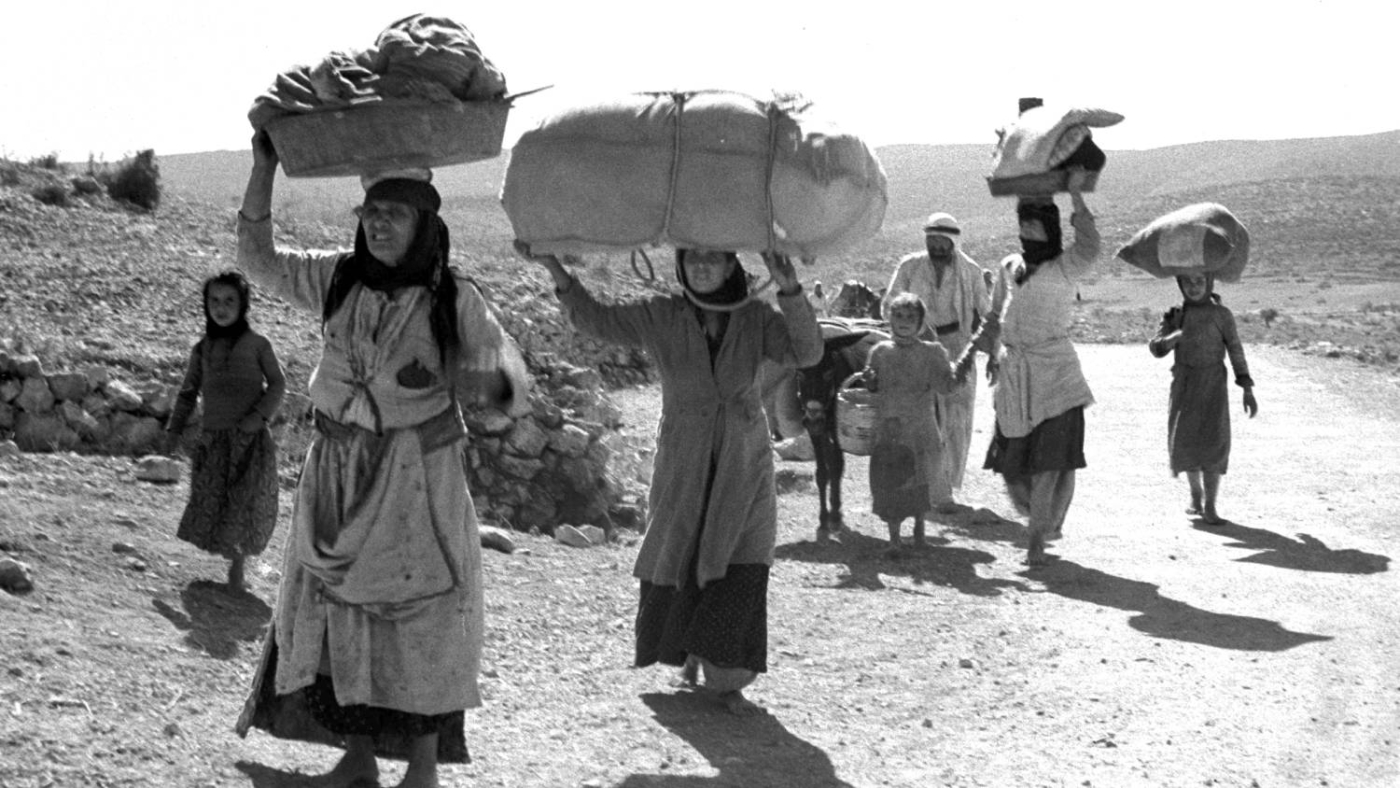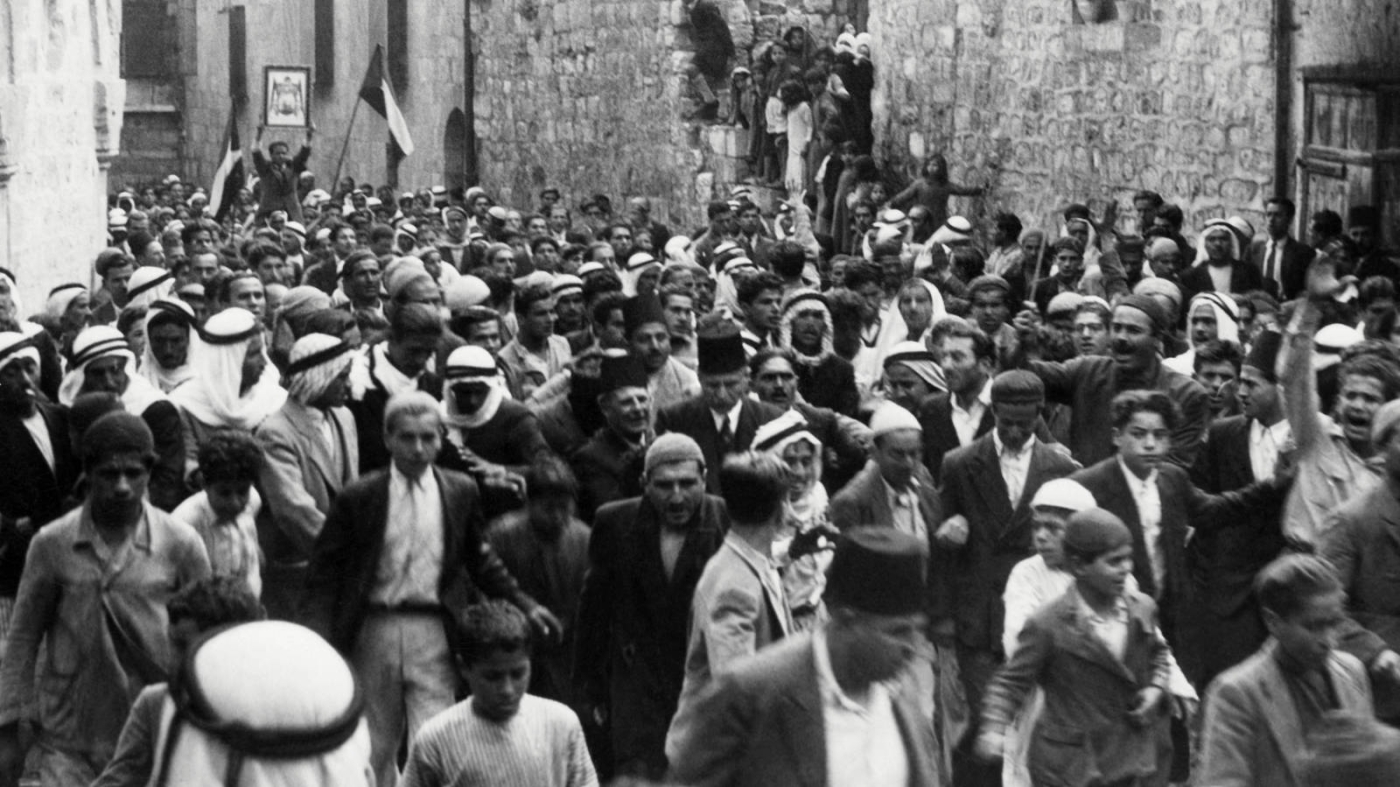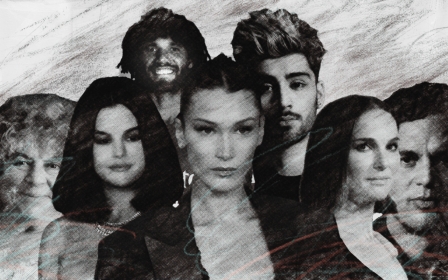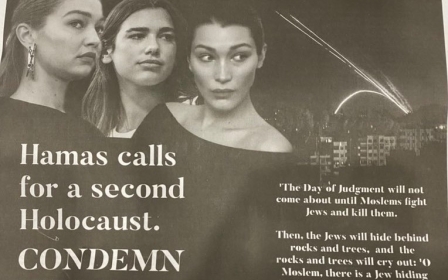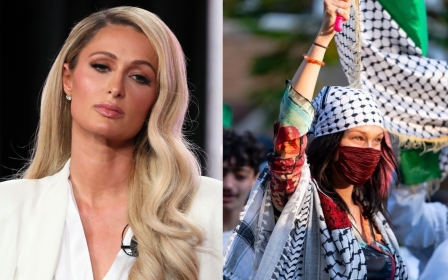Bella Hadid says she lost modelling jobs for supporting Palestine
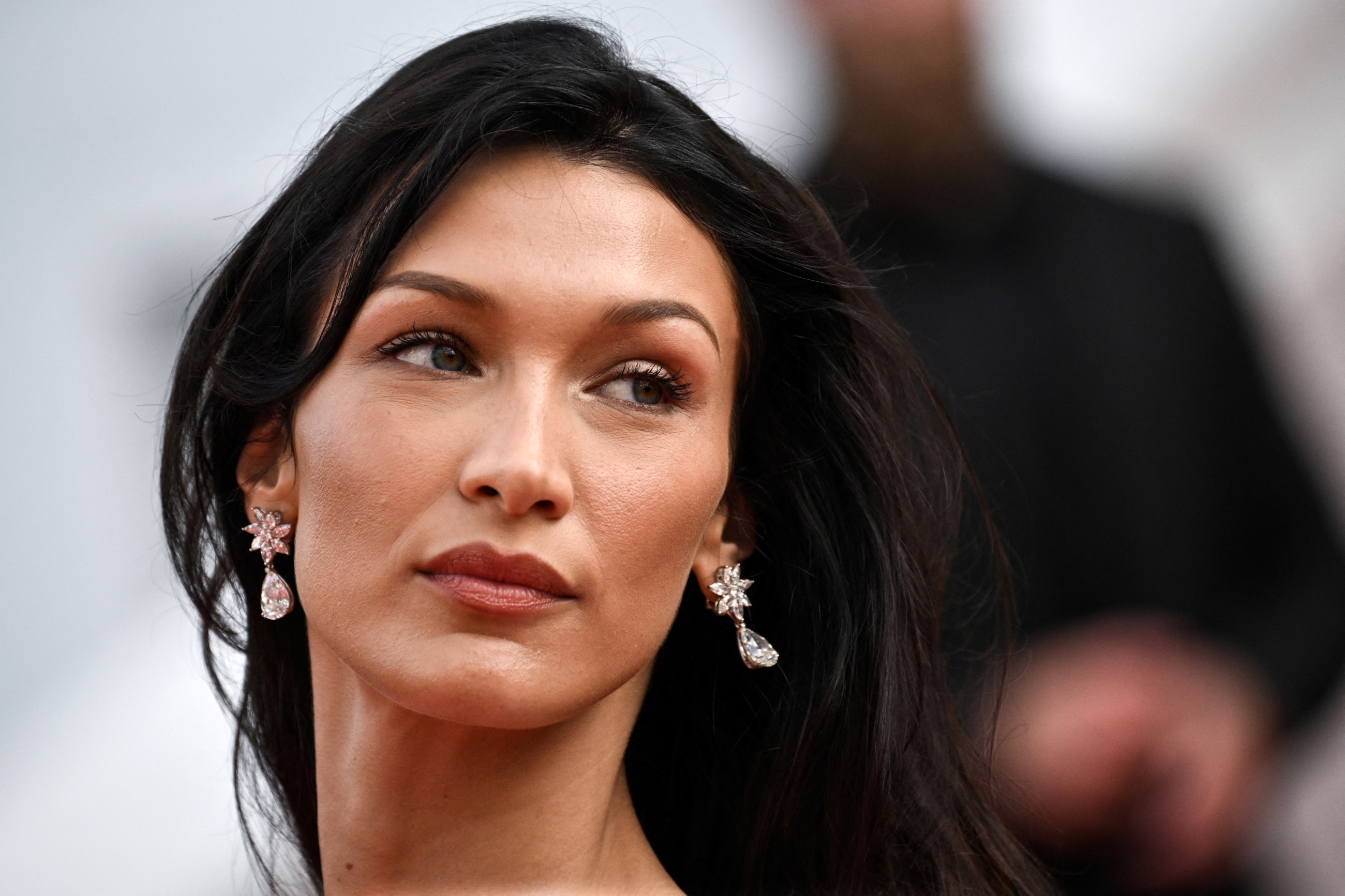
Dutch-Palestinian supermodel Bella Hadid has said she is unafraid to lose modelling jobs in order to continue her support for Palestine, days after she revealed that her advocacy had caused some companies to stop working with her.
In a joint interview with Egyptian-American actor Ramy Youssef for GQ magazine, the 25-year-old model opened up about her Muslim and Arab heritage and her continued support for the Palestinian cause.
'I had so many companies that stopped working with me... I have friends that completely dropped me'
- Bella Hadid
Hadid is the daughter of Palestinian real-estate developer Mohamed Hadid and Dutch model Yolanda Hadid and is often lauded as being one of the most outspoken celebrities advocating for Palestine.
In the interview, Hadid referenced her parent’s divorce in 2000 when she relocated to California and felt that she was “extracted” from her Palestinian side of the family.
“For so long I was missing that part of me, and it made me really, really sad and lonely,” she said, talking of her Arab heritage.
New MEE newsletter: Jerusalem Dispatch
Sign up to get the latest insights and analysis on Israel-Palestine, alongside Turkey Unpacked and other MEE newsletters
“I would have loved to grow up and be with my dad every day and studying and really being able to practice [Islam], just in general being able to live in a Muslim culture,” Hadid says. “But I wasn’t given that.”
Despite her detachment from her Palestinian family, Hadid says she is proud of her heritage and often uses her platform as a tool to raise awareness about the Israeli occupation. She also spends time thinking about her family and what they endured.
“I speak about [this stuff] for the elderly that are still living there that have never been able to see Palestine free, and for the children that can still grow up and have a beautiful life.”
Her father’s family was forced to leave Palestine in 1948 during the Nakba or “the Catastrophe” when Zionist militias expelled more than 700,000 Palestinians from historic Palestine and destroyed some 500 villages to make way for the creation of Israel.
At the time, Mohamed Hadid became a refugee in Syria, losing his family home in Safad to a Jewish family.
The Nakba, day of catastrophe for Palestinians, explained
+ Show - HideThe Nakba is one of the key events in modern Middle East history and one that has come to define the Israeli-Palestinian conflict ever since.
Also known as "The Catastrophe", it began in late 1947 and 1948, as the new state of Israel came into existence.
Palestine was part of the Ottoman Empire for hundreds of years until it was captured by the UK at the end of World War One (1914-18).
The League of Nations - a forerunner of the UN - gave Britain a "mandate" over Palestine after the war, which did not take into account the wishes of the native Palestinian population.
The aim of such mandates was to bring about "the rendering of administrative assistance and advice" to native populations until they were deemed capable of standing alone as independent states.
What was the problem?
The British Mandate incorporated the Balfour Declaration, sent by Arthur Balfour, the British foreign secretary, to Lord Walter Rothschild, a prominent member of the British Jewish community, in 1917.
It pledged to establish "in Palestine a national home for the Jewish people", who made up less than 10 percent of the population at the time.
During the mandate years (1923-48), the UK facilitated the immigration of European Jews to Palestine, increasing their population 10-fold, from 60,000 in the pre-Mandate era to 700,000 by 1948.
They also trained, armed and supplied Zionist groups, and allowed them a degree of self-governance.
In contrast, the native Palestinian population, which rejected European Jewish immigration and called for independence, was violently suppressed.
The number of Jews arriving in Palestine from Europe and elsewhere increased in the wake of the Holocaust, which systemically targeted Jews and others, resulting in the deaths of more than 6m people.
In February 1947, Britain announced it would terminate the mandate and turn the question of Palestine over to the newly formed United Nations.
The UN adopted a partition plan in November 1947, which divided Palestine into two parts: 55 percent would form a Jewish state, while 45 percent would create an Arab state. Jerusalem would be kept under international control.
But many argue that the plan did not take into account populations at the time.
In addition, Jewish paramilitary groups produced a strategy to control the borders of the new territory, called Plan Dalet (below).
Some of their members would go on to become key Israeli leaders, including Yitzhak Rabin (prime minister 1992 - 1995), Ariel Sharon (prime minister 2001 - 2006) and Moshe Dayan (minister of defence 1967 - 1974).
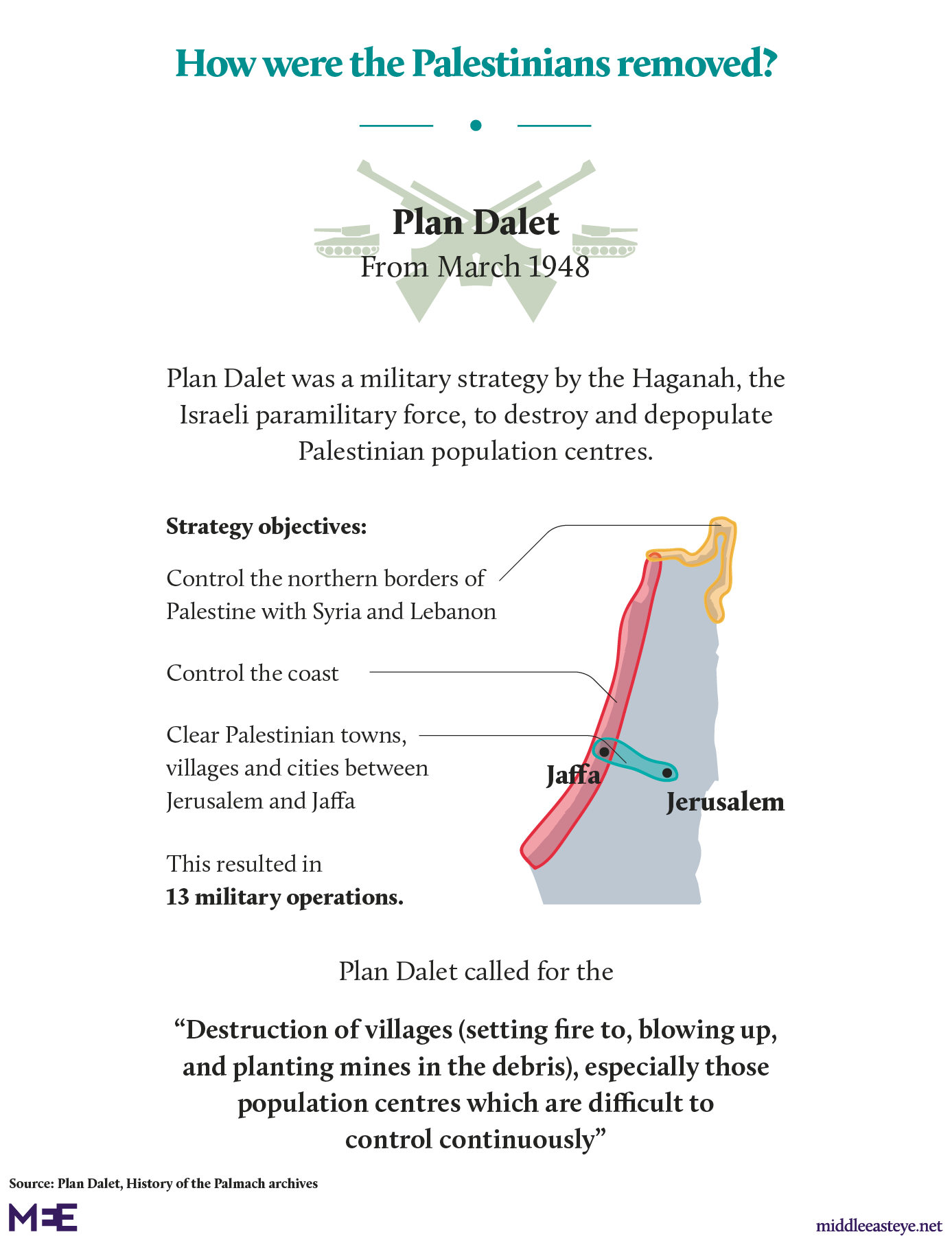
In the weeks and months that followed, thousands of Palestinians were killed or driven from their homes and communities uprooted by Jewish paramilitary groups.
Jews were also killed by Palestinian groups, if not in the same numbers.
On 14 May 1948, the State of Israel was unilaterally declared, a day before the British Mandate officially expired.
The new state had increased its share of historic Palestine from 55 percent to 78 percent. The remaining 22 percent was under Arab control.
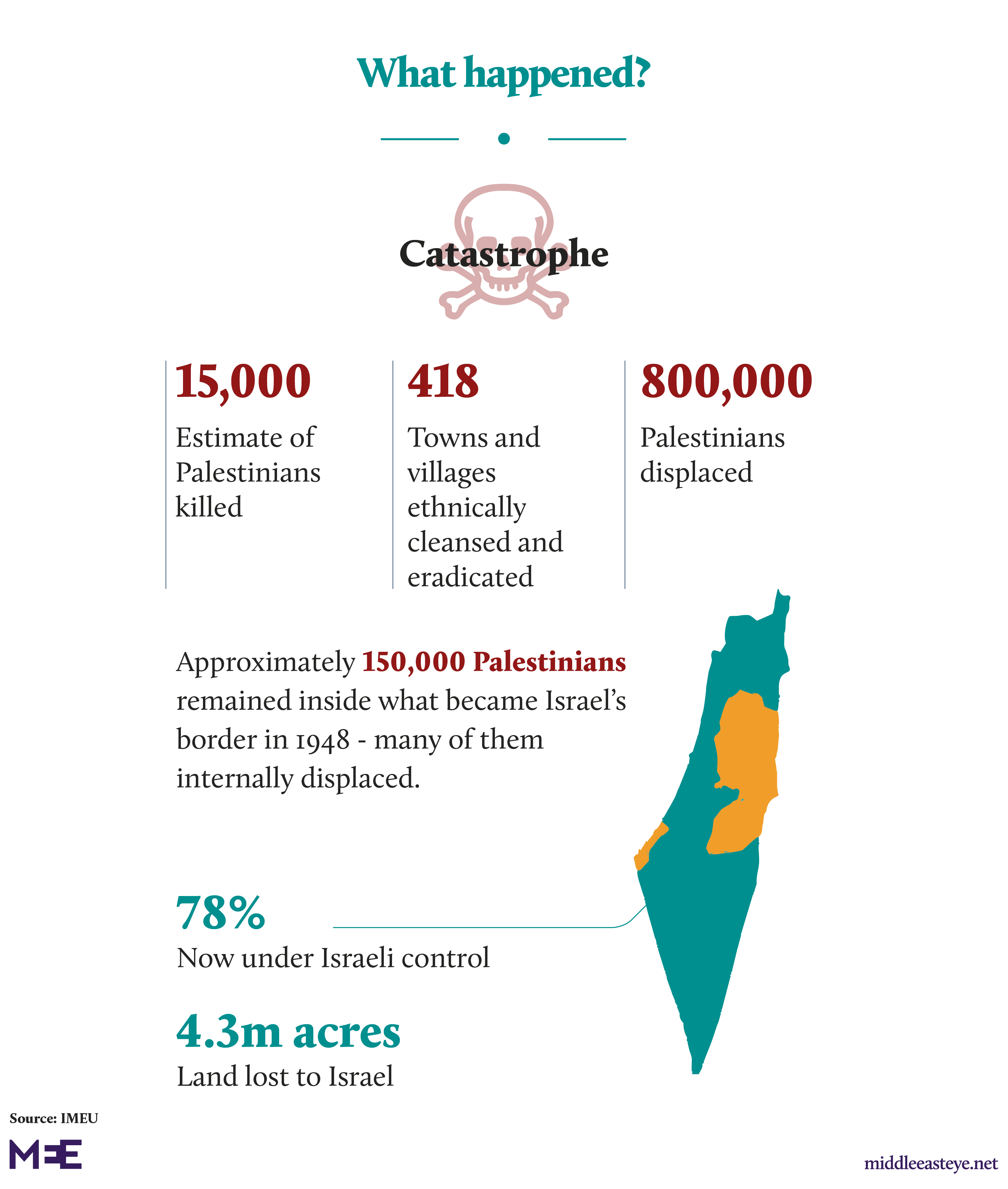
Many of the Palestinians who fled or were driven from their homes never returned to historic Palestine. Much of it is now the modern-day state of Israel.
More than 70 years later, millions of their descendants live in dozens of refugee camps in Gaza, the West Bank, and surrounding countries, including Jordan, Syria, and Lebanon.
Many still keep the keys to the homes that they and their families were forced to leave.
Nakba Day is now a key commemorative date in the Palestinian calendar. It is traditionally marked on 15 May, the date after Israeli independence was proclaimed in 1948.
Some Palestinians also observe it on the day of Israeli independence celebrations, which itself changes from year to year due to variations in the Hebrew calendar.
Talking about how her career is affected by her support for Palestine, Bella told GQ, “I realized that I’m not on this earth to be a model.
“I’m so lucky and blessed that I’m in a position where I can speak out the way that I do. And really, the downfall is what? That I lose my job?”
Just a few days prior to the publication of the GQ issue, Hadid made an appearance on the Rep podcast. Hosted by journalist Noor Tagouri, the podcast examines the misrepresentation of Muslims in US media.
There, Hadid admitted that her work has been affected by her advocacy in the past.
“I had so many companies that stopped working with me,” she said. “I have friends that completely dropped me.”
“When I speak about Palestine, I get labelled as something that I’m not. But I can speak about the same thing that’s happening there, happening somewhere else in the world, and that’s honourable. So, what’s the difference?”
Bella Hadid has often made headlines, calling out social media platforms such as Instagram for censoring her posts on Palestine.
Last year, the model was featured in a New York Times advert which appeared to link her with Hamas movement, the de facto ruler of the Gaza Strip. Bella’s sister Gigi and Grammy-winning singer Dua Lipa were also featured in the advert.
Bella Hadid will make her acting debut later this year as a guest star on the Hulu comedy, Ramy.
This article is available in French on Middle East Eye French edition.
Middle East Eye delivers independent and unrivalled coverage and analysis of the Middle East, North Africa and beyond. To learn more about republishing this content and the associated fees, please fill out this form. More about MEE can be found here.


